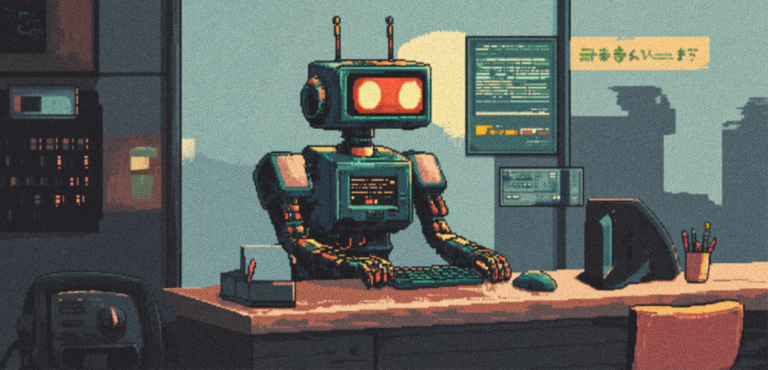
The Transformative Power of Chatbots and AI in Modern Customer Service
The convergence of technology and human interaction has ushered in a new era of customer service, driven by the evolution of chatbots and virtual assistants. These digital companions have transformed the way businesses engage with customers.
The integration of artificial intelligence has propelled chatbots and virtual assistants to the forefront of customer service. AI-powered assistants can provide round-the-clock support, addressing customer inquiries and resolving issues outside traditional business hours.
Even better – leveraging data and AI, chatbots and virtual assistants can offer tailored recommendations and solutions, enhancing customer satisfaction. By handling routine queries and tasks, these tools allow human agents to focus on complex issues, improving overall efficiency and CX.
The evolution of chatbots and virtual assistants
The genesis of conversational AI can be traced back to the mid-20th century, with ELIZA, a pioneering program capable of rudimentary conversation. However, it wasn’t until the advent of the internet and the rise of personal computers that chatbots began to gain traction. Early versions were primarily rule-based, following scripted dialogues, and lacked the sophistication of today’s AI-powered counterparts.
The landscape dramatically shifted with the advent of AI. Companies like Apple, Amazon, Google, and Microsoft were at the forefront of developing sophisticated virtual assistants.
- Apple’s Siri: Introduced in 2011, Siri was one of the first widely popular voice assistants. Initially relying heavily on speech recognition and basic task completion, Siri has evolved into a more capable assistant with improved natural language understanding.
- Amazon’s Alexa: Launched in 2014, Alexa quickly gained traction due to its integration with Amazon’s ecosystem. Beyond basic commands, Alexa has expanded its capabilities to include music playback, smart home control, and even making purchases.
- Google Assistant: Built on Google’s extensive knowledge graph, Google Assistant offers a comprehensive suite of features. It excels in providing information, setting reminders, and controlling smart devices.
While virtual assistants have captured the limelight, chatbots have undergone a quiet revolution. Initially limited to simple rule-based interactions, chatbots have evolved into sophisticated conversational agents capable of handling complex queries and tasks.
- Customer service chatbots: These AI-powered chatbots have become indispensable for businesses, handling customer inquiries, providing support, and resolving issues efficiently.
- AI chatbots: Advanced chatbots like ChatGPT can engage in complex conversations, offering information, completing tasks, and even providing creative content.
- Specialized chatbots: From mental health support to financial advice, chatbots are being developed for a wide range of specific purposes.
Key AI technologies driving innovation
The integration of artificial intelligence has been the catalyst for the rapid evolution of both chatbots and virtual assistants. Machine learning algorithms allow these systems to learn from vast amounts of data, improving their performance over time. Deep learning has further enhanced their capabilities, enabling them to understand and respond to complex queries, exhibit emotional intelligence, and even engage in creative tasks.
Natural Language Processing (NLP) empowers machines to understand, interpret, and generate human language. This technology enables chatbots and virtual assistants to engage in meaningful conversations, answer questions, and follow complex commands. Techniques like sentiment analysis, named entity recognition, and language modeling are crucial components of NLP.
Machine Learning allows systems to learn from data without explicit programming. This technology enables chatbots and virtual assistants to improve their performance over time. By analyzing vast amounts of data, these systems can identify patterns, make predictions, and adapt their behavior accordingly. Techniques such as supervised learning, unsupervised learning, and reinforcement learning are commonly used to optimise performance.
Deep Learning is a subset of machine learning, deep learning involves artificial neural networks with multiple layers. This technology has been instrumental in enhancing the capabilities of chatbots and virtual assistants. Deep learning models can process complex data, such as images, speech, and text, enabling tasks like image recognition, speech recognition, and natural language understanding.
Subscribe to our bi-weekly newsletter
Get the latest trends, insights, and strategies delivered straight to your inbox.
The future of customer service sails with AI personalization
The future of customer service is intertwined with the evolution of chatbots and virtual assistants. The future of chatbots and virtual assistants is marked by rapid innovation, with several key trends shaping the industry.
Metaverse integration: As virtual and augmented reality technologies advance, the integration of chatbots and virtual assistants into immersive digital environments becomes increasingly plausible. These AI companions can serve as guides, assistants, or even characters within these virtual worlds, enhancing user experiences and creating new opportunities for interaction.
Specialized AI assistants: The trend towards specialization is evident in the development of AI assistants tailored to specific industries and needs. From healthcare companions providing medical information and appointment scheduling to financial advisors offering personalized financial guidance, these specialized assistants cater to niche markets and offer in-depth support.
AI-powered customer service platforms: Customer service is undergoing a transformation with the integration of AI-powered chatbots and virtual assistants. These platforms offer advanced support, providing personalized interactions, efficient problem-solving, and 24/7 availability. They can handle routine inquiries, freeing up human agents to focus on complex issues.
Increased focus on sustainability: There’s a growing emphasis on developing environmentally friendly AI assistants. This includes optimizing algorithms for energy efficiency, reducing carbon footprints, and promoting sustainable practices within the AI industry.
Distilled
From basic digital assistants to sophisticated AI companions, chatbots and virtual assistants have revolutionized customer service. These tools offer personalized, efficient, and round-the-clock support, transforming the customer experience. As AI continues to evolve, we can expect even more innovative solutions that blend human expertise with technology.